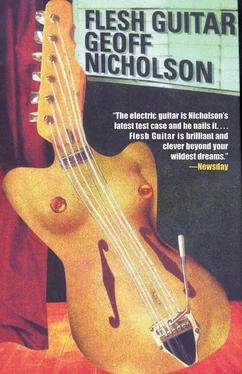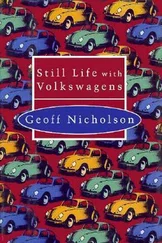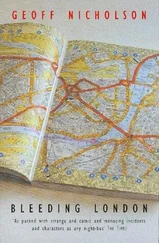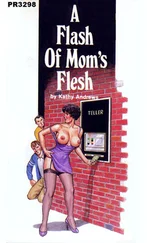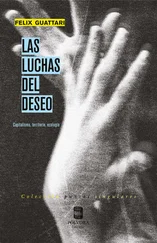She hadn’t been foolish enough to believe that there’d be songs, or even loose compositions, but she was hoping for some sort of guidance. All Scorn said was, ‘Start playing and we’ll see what happens.’ That was OK with Jenny too. She made sure her guitar was in tune, strapped it around her and waited for the twins to take up position with one of the instruments, but they showed no sign of doing that, just stood at the centre of the studio muttering aggressively at each other. What the hell? Scorn displayed no concern and let the tape run. So Jenny began improvising some tricky chord progressions and hoped the kids would eventually join in.
They didn’t. They continued to mutter and although their words never became audible, the boys became much more animated. The conversation was turning into a loud, fierce argument, which in turn became physical. They started to push each other, shoulder to shoulder, and when push came to shove, one of them, Jenny had no idea which since she couldn’t tell them apart, was sent reeling backwards so that he fell on to the drum kit.
Jenny was about to stop playing and help the kid up, but Scorn was gesturing at her from the control room, telling her to keep playing, to act as though nothing was wrong. It was easier said than done but Jenny continued the improvisation she’d started as the boys continued to fight, their fury increasing into an all-out flurry of flying fists and motorcycle boots. At first Jenny had the feeling she was providing the soundtrack for a violent, silent, slapstick comedy, however the twins were anything but silent. They squealed and yelled, and once in a while one of them crashed into the stand holding the tubular bells or had his head banged against the keyboard of the Hammond organ.
It only gradually dawned on Jenny that these violent noises and occasional rhythmical outbursts were strangely familiar. Although they didn’t reproduce exactly the music from the demo tape, the sounds were precisely similar in kind. She saw that this was the ‘extended technique’ Scorn had spoken of, a method of beating each other up with a quasi-musical racket produced as a side effect.
She felt like a childminder who’d abandoned her charges, fiddling while Rome burned, a boxing referee who was allowing a free-for-all. Surely adults had some obligation to prevent children damaging themselves, even if it was for the sake of art. Yet Scorn showed no signs of stepping in, and to be fair, the twins seemed to be having the time of their lives.
Unsure exactly what kind of guitar noise best suited these circumstances Jenny cranked up her echo unit and made a lot of spacy noise. The twins took no notice, but Scorn smiled approvingly.
Jenny could not see how or when this session would end; whether the twins would stop because of boredom or exhaustion, or whether they’d carry on until one or other was bludgeoned into unconsciousness. After half an hour one of them had a nose bleed, and after forty-five minutes or so one of them hoisted up the other, using the rope around his neck, and shoved his head into the innards of the grand piano (‘very John Cage,’ cooed Scorn) before running from the studio.
Even Jenny had to admit that the piano strings made a lovely raw, loose, opulent sound, but the boy remained quite motionless. She pulled him from the guts of the instrument and sat him on the piano stool. Still stunned, and quite oblivious to Jenny’s presence, Walter turned round, addressed the keyboard and began a long improvisation, all diminished sevenths and suspended fourths. It was rather wonderful and when she joined in, Jenny was stretched to keep up. She was keen to hear the playback but to her dismay she learned that Scorn hadn’t bothered to record this part of the proceedings. He said it was tame and old hat. All he wanted were the bangs and crashes and scrapes. And just one hour into the session he announced that it was over. He’d have to do a bit of serious remixing, maybe add a few musical touches of his own, but he had enough material for an album.
He appeared to be right. Siam: The Hormone Twins Play The Music Of Tom Scorn was rush released and in the shops a month or so later. Reviews were mixed. Jenny Slade, credited only as a session player, was always singled out by the critics. Some said she was the glue holding the whole thing together. Others said she sounded constrained and inhibited compared to the ‘free-spirited playing’ of the twins. Jenny was just about able to laugh it off. What did critics know? What difference did their opinion make? She was sort of glad she’d worked with the twins. It had been an experience, if not a very edifying one.
She never played with them again but she watched their careers with interest. Being a prodigy is a difficult and dangerous business. For one thing, prodigies grow up and have to prove themselves all over again. For the Hormone Twins there was another danger. As small boys they’d lacked the ability to do each other much physical damage. As they became adolescents they developed bulk and strength, and their fights became much more violent. Cuts, abrasions, black eyes became commonplace, an essential part of their act, and it seemed only a matter of time before one of them seriously injured the other.
The moment of crisis came when Bobby slammed the body of a double-bass down on Walter’s right hand and broke two of his fingers. In one way it might appear not to matter. The twins could ‘play’ just as well with broken hands as without. They could play with broken arms, legs, skulls, as far as that went. But this injury was a watershed. After Walter’s fingers had healed he announced he was now a pacifist and wasn’t going to fight with Bobby any more, wasn’t even going to defend himself against his attacks.
The first gig after Walter’s return was a wild one. Bobby tore into his brother, kicking and punching him for all he was worth. But when Walter stood silent and inert, just getting hit and soaking up the punishment, Bobby soon tired of the procedure. After all, Bobby was a boy who liked to fight, not an outright sadist. He wanted an opponent not a human punchbag. He stopped hitting his brother and the gig ended prematurely in silent confusion.
Jenny was called in, not to pour oil on troubled waters, but rather the reverse, to see if she couldn’t stir up a bit of the old sibling rivalry. She talked to them, suggested they might wear protective clothing or use some safer martial arts techniques, but it was useless. Walter said he was going to pursue a career as a solo pianist; a bit of Liberace and a lot of Thelonius Monk. Jenny didn’t try to argue with him. She still thought his piano playing was pretty good.
Bobby was left with a far greater dilemma. He wanted to remain a Hormone Twin and play the way he always had, and for a while he did. He would arrive in the studio or on stage and proceed to throw himself around as though he were being beaten up by a squad of invisible men. He’d launch himself over the drums or the vibraphone, slam the piano lid down on his own hand, hit himself over the head with a saxophone. It was heart-felt but somehow it never quite worked. It seemed too forced, too premeditated. It wasn’t the same without Walter.
Both of the boys individually asked Jenny to play with them, but she declined. It seemed to her that the moment and the magic had gone. Things got worse for the twins. Walter found himself playing cocktail piano in a Chinese restaurant in Carlisle, where ‘Chopsticks’ was requested a dozen times a night, and Bobby became a comedy mime act. Audiences spurned them both. Tom Scorn now described them as ‘shallow and revisionist’ and said he regretted having produced their first record. Before long they disappeared completely and the more macabre fans talked of fights to the death and bizarre suicide pacts.
Читать дальше
